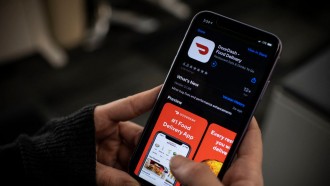Singapore, known for its commitment to sustainability and environmental conservation, is set to upgrade its beverage container recycling efforts with the upcoming launch of the Beverage Container Return Scheme (BCRS).
As reported by The Straits Times, this initiative is poised to replace the existing reward-based system that utilizes reverse vending machines (RVMs) for collecting empty plastic and aluminum beverage containers.
With a planned roll-out in April 2025, the BCRS is a collaborative effort between the National Environment Agency (NEA) and F&N Foods, aiming to enhance recycling rates across the island nation significantly.
What the New Recycling Program Brings
Under the BCRS, a crucial step involves introducing a refundable deposit of 10 cents on all pre-packaged drinks in plastic bottles and metal cans, ranging from 150ml to 3 liters.
This deposit will be repaid to consumers upon returning their empty containers to designated return points. These points will accept all eligible beverage containers featuring a prominent deposit mark and barcode for easy identification and streamlined processing.
The barcode component will also be an anti-fraud measure, ensuring the scheme's integrity.
Read Also: New Method Developed by Researchers Transforms Fog Into Clean, Drinkable Water
What Experts Think
Observers and experts are optimistic about the role of RVMs in the success of the BCRS. Professor Seeram Ramakrishna, a Plastic Recycling Association Singapore board member, shared that countries with similar deposit-refund schemes witness return rates ranging from 40% to 80%.
The RVMs are positioned as key facilitators of this trend by promoting consumer recycling behavior. Economist Loh Wei Kok from Research For Impact noted that RVMs would likely be familiar to the public by the scheme's launch, contributing to its successful adoption.
CNA reported back in Sept 2022 that increased recycling rates at reverse vending machines in places like Jurong were demonstrated by higher drop-off numbers for beverage containers.
This introduced the idea of a deposit scheme by the National Environment Agency (NEA), requiring consumers to pay a deposit for beverage containers to encourage recycling.
Consumer Concerns
Some consumers expressed concerns regarding the inconvenience associated with RVMs. Ms. Stella Soon, a 48-year-old resident, cited difficulties with the machines' identification capabilities and the changing criteria for reward eligibility as deterrents to using RVMs.
On the other hand, individuals like Mr. Tan Hang Chong, 49, preferred RVMs over traditional blue recycling bins due to contamination risks in the latter.
Despite these varying sentiments, RVMs have garnered praise for their role in encouraging the recycling habit in Singapore. Ms. Pek Hai Lin, a senior sustainability manager at the Singapore Institute of Technology, highlighted that the public's willingness to sort and return containers indicates a broader trust in the recycling system's effectiveness.
This trust is crucial in minimizing contamination and maximizing efficiency in recycling.
The transition to the BCRS is accompanied by expanded rewards offered through the Recycle N Save program.
Originally providing one 20-cent FairPrice voucher for every four deposited containers, the program now includes ActiveSG credits, Sentosa Fun Pass tokens, and even a "no rewards" option. This flexibility acknowledges the diverse motivations behind recycling behavior and seeks to accommodate various preferences.
Stay posted here at Tech Times.
Related Article: Toyota Partners with Tesla Co-Founder to Recycle Old EV Batteries






